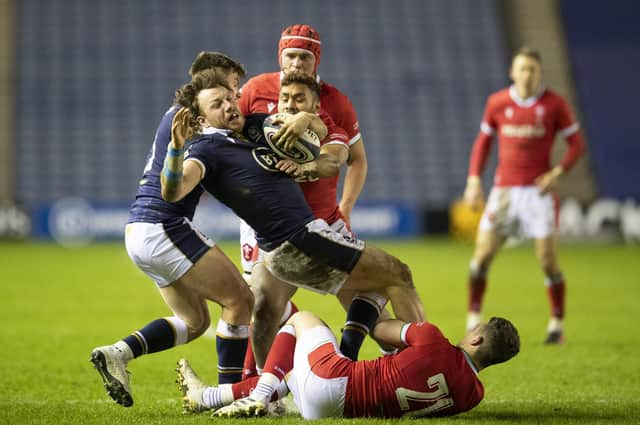Elite sport should introduce cap on contact training sessions, Scottish scientist urges


Professor William Stewart told MPs on Tuesday there should be a limit on the number of collisions and contact players of both rugby and football should have during one full season.
Appearing before the DCMS Committee in Westminster to discuss concussion in sport, the consultant neuropathologist defended contact sports, but called for changes.
Advertisement
Hide AdAdvertisement
Hide AdHe said: “It’s a collision sport, a contact sport. There’s risks in any of these.
“In my personal view I think it could be made much safer to reduce the risk of head injury and head impacts and the risk of dementia further down the line.
“It is one of those things that needs to be legislated by the game, to say, this is the maximum number of contact sessions that are permitted in any one season.
"The NFL stepped in and said contact training should be reduced, if not excluded, from the game.”
The English Football Association and the Professional Footballers’ Association previously appointed Dr Stewart to lead a probe into the long-term effects of participation in football.
He has now told MPs changes in training could be enough to keep athletes safer.
Dr Stewart said: “In terms of exposure to head injuries and head impact, that’s the big problem.
"The easiest thing is to look at training, cut back on training as much as possible and that might produce a fantastic reduction in load and exposure to brain injuries and head impact.
Advertisement
Hide AdAdvertisement
Hide Ad“If that’s not enough and we are still concerned about the exposure to professional athletes in particular, then we need to look at the number games they are exposed to and can we cut back on the number of games?”
The academic also suggested football was just as dangerous as rugby, but had failed to be as responsible by introducing new safety measures.
He said: “You could argue repetitively heading a ball could be just as damaging as the contacts in rugby.
“Football has a habit of whenever it’s faced with having to develop, or go out on their own and trying to develop something unique, [they act] as if the problem never occurred before.
“What football introduced is a shambles in 2021.
“Rugby has made great developments in understanding how you can assess and identify players with brain injuries off the field and that should be the benchmark all others sports follow from.”
Dr Stewart also questioned the lack of funding into investigating the issues and said senior bodies internationally were failing to tackle the issue.
He explained: “The money that has come forward has been incredibly welcome.
“It’s never going to be enough, this is a big issue to explore and investigate.
Advertisement
Hide AdAdvertisement
Hide Ad“These are big sports, big industries, global industries, so the problem of dementia and head injuries in sport is not a uniquely English, Scottish or UK problem. It’s a global phenomenon.
“And we have not yet seen FIFA, UEFA and the other sporting federations, including world rugby, step forward with quite the same enthusiasm to support research as we’ve seen from our local sport associations.”
If you haven't already, please consider supporting our trusted, fact-checked journalism by taking out a digital subscription.
Comments
Want to join the conversation? Please or to comment on this article.